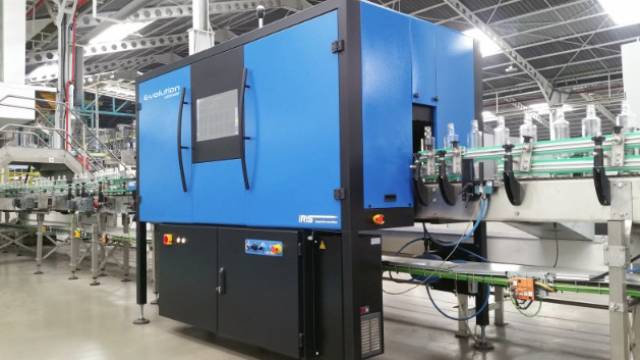IRIS Inspection machines has been chosen by LAV
Turkish specialist LAV has turned to IRIS Inspection machines for the latest innovations in camera-based inspection equipment for its two high productivity manufacturing sites.
One of the world’s most dynamic manufacturers of glass tableware is investing strongly in the latest camera-based inspection technology to optimise the quality of its finished products. Part of the family-owned Güraller Group, Turkish specialist LAV manufactures 700 million table glass items annually, including tea sets, beverage glasses and soup bowls, which are exported to customers in 130 different countries.
Within the past 12 months, this relative newcomer to the global table glass business has turned to IRIS Inspection machines for the latest innovations in camera-based inspection equipment for its two high productivity manufacturing sites in Kütahya, Turkey.
It was at the end of 2016 that LAV ordered its first Evolution Ultimate machine for test purposes. Developed by Lyon-based IRIS, this camera-based machine is dedicated to the identification of cosmetic defects in the sidewalls of luxurious glassware, including tableware, perfumery and premium spirits bottles. Evolution Ultimate is equipped with 16 HD cameras for the complete coverage of sidewalls and rims in tumblers and stemware. Using this sophisticated equipment, it is possible to inspect for different types of deformation, light blisters, uneven glass distribution in the base, tears, lap marks, cat scratches, oil marks and many types of low contrast surface faults.
Following the successful completion of trials, LAV ordered another seven Evolution Ultimate inspection machines at the beginning of 2017. And the customer’s satisfaction with the results obtained by the IRIS equipment has been further reinforced in recent weeks, following the placement of a third order, this time for two more machines.
Evolution Ultimate technology has been customised by the IRIS research and development team to accommodate the specific requirements of tableware producers. This includes the development of new algorithms to inspect the most critical defects encountered on rims, including deformation, ovalisation, chips, beans and inclinations, as well as defects under the rim.




